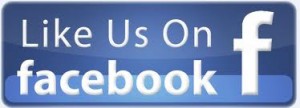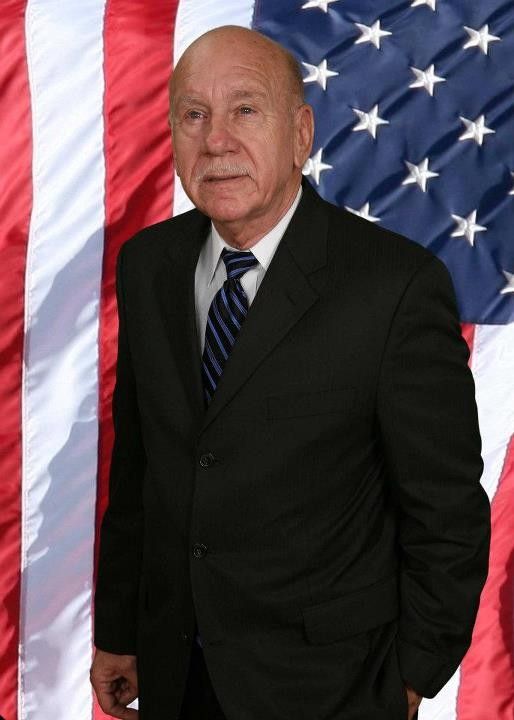http://www.sunshinestatenews.com/story/us-must-take-stand-against-cuba-and-venezuela?utm_source=Constant%20Contact&utm_medium=email&utm_campaign=News%20Alert
In recent months, we have seen Venezuela slip into complete chaos. Under the brutal and oppressive dictatorship of Nicolas Maduro, we have seen things go from bad to worse. Food and medicine shortages, violence on the streets and economic uncertainty.
We’ve also seen companies like General Motors, Bridgestone and General Mills scale back their operations in Venezuela. Recently, United Airlines also joined in this effort by announcing it will suspend flights to Venezuela next month.
It’s no wonder that these companies are pulling out of a country engulfed in violent political protests and economic chaos.
Venezuelans endure long lines to purchase basic necessities all while Maduro’s dictatorship blames companies for the country’s shortages. The Maduro regime continues to mismanage the country’s oil resources, has produced a swollen inflation rate and dismal exchange rate, leaving the Venezuelan people to deal with hardship and corruption.
This is not acceptable and we should not stand for these injustices to the Venezuelan people. The United States must stop doing business with Venezuela immediately.
Dr. Tolbert addressed this in January
Governor Scott as is the federal government, six months behind if not more.
We should have corrected this issue over 10 years ago
Dr Tolbert
The question to be asked, “Is Russia and China involvement in Venezuela a
threat to the security of the United States?”
Included in the article is; what’s going on in Venezuela, what happened in the Cuban crisis and also in Haiti.
I have written several articles that combine data that is including culture requirements causing Russia and China to come into these countries because the United States is not helping these other nations.
For further articles written by Dr Tolbert please visit the following sites.
http://www.cnbc.com/2015/01/29/the-motivations-behind-chinas-moves-into-latin-america.html
https://www.fool.com/investing/general/2014/01/04/china-and-russia-are-cozying-up-to-venezuelas-oil.aspx
http://publications.atlanticcouncil.org/chinalatam/
http://www.telesurtv.net/english/news/Russia-Warns-US-Action-on-Venezuela-Threatens-Latin-America–20150312-0020.html
In 1980 approximately 1.5 million Cubans came to America where as in 2010 we’re only talking about approximately 80,000 Haitians who are now being told to leave.
The Cubans who came in 1980 are now politicians who are protesting and calling for the impeachment of the president.
In the following links I discuss the Hispanic culture on child rearing practices and customs, gender identity, health care practices and customs, and the role of religion/spirituality and I will compare and contrast these with other West Indies Countries. It is also important to read the other articles.
https://www.cfabamerica.com/ethical-dilemma-in-modern-society , —
https://www.cfabamerica.com/project-bring-jobs-home-made-in-america ,
https://www.cfabamerica.com/h-r-25-fair-tax-act-of-2011 .
The Government of Donald Trump will look for the transition to democracy in Venezuela.
Published: 23 January, 2017 / 7:52 am / section: News, politics– “The U.S. government. Uu. Along with other international actors will seek a transition to democracy in Venezuela, so said the new secretary of state of North America, Rex Tillerson.
In an interview for Latin America goes global, Tillerson considered a “calamity” lives in Venezuela and expressed the commitment of the government of Donald Trump to help to return to democracy in the country.”
—-Composition Ripened / Photos: Ucchile-Elestenoticias.
“I think we are in complete agreement with regard to the calamity that has happened in Venezuela, largely due to the incompetence and the dysfunction of your government-first, with Hugo Chavez, and now with his designated successor, maduro,”said “as well as we will also cooperate with multilateral agencies such as the organization of American States ( OAS ), the search for a negotiated transition to democracy in Venezuela,” added the new secretary of state in the administration of trump.
Pointed out that “at the end, it was rebuilt.” The political institutions, LED by brave defenders of democracy and human rights, which will pave the way for the type of reforms needed to put to Venezuela in the path of economic recovery”.
” We must continue to denounce anti-Democratic practices of mature. We should call for the release of political prisoners and strengthen sanctions to the violators of human rights in Venezuela and drug traffickers,” he emphasized.”—
Dr. Tolbert sent his resume to Donald Trump
On the Sunday January 22, 2017 God told Dr. Tolbert to work with the people in Venezuela and bring them to the understanding that God is standing up for them now and the transition will take place.
Dr. Tolbert is a pastor, Dr. Education and retired military. He would be the ideal choice for Donald Trump, as the President of the United States, to select Dr. Tolbert as the ambassador for Venezuela.
Copy Editor, Vilet Dye…viletsvoice@yahoo.com
Www.calltoduty.org
http://www.sunshinestatenews.com/story/us-must-take-stand-against-cuba-and-venezuela?utm_source=Constant%20Contact&utm_medium=email&utm_campaign=News%20Alert
In recent months, we have seen Venezuela slip into completely chaos. Under the brutal and oppressive dictatorship of Nicolas Maduro, we have seen things go from bad to worse. Food and medicine shortages, violence on the streets and economic uncertainty.
We’ve also seen companies like General Motors, Bridgestone and General Mills scale back their operations in Venezuela. Recently, United Airlines also joined in this effort by announcing it will suspend flights to Venezuela next month.
It’s no wonder that these companies are pulling out of a country engulfed in violent political protests and economic chaos.
Venezuelans endure long lines to purchase basic necessities all while Maduro’s dictatorship blames companies for the country’s shortages. The Maduro regime continues to mismanage the country’s oil resources, has produced a swollen inflation rate and dismal exchange rate, leaving the Venezuelan people to deal with hardship and corruption.
This is not acceptable and we should not stand for these injustices to the Venezuelan people. The United States must stop doing business with Venezuela immediately.
* PRONUNCIATION OF THE INTERIM PRESIDENT: JUAN GUADIO *
Dr Tolbert
Back in 1998, a man named Hugo Chávez won the Presidential elections and became the President of Venezuela. He then called a Constitutional Assembly (an assembly that the people supported through a referendum) to rewrite Venezuela’s Constitution. Chavez and his supporters wrote the 1999 Venezuela Constitution, which was called by many one of the most democratic constitutions in modern history.
Chavez ran for President again in 2000, once the new Constitution took over. He won, and started to implement some of the things he promised, like social programs for the poor. Keep in mind that Chavez was President of Venezuela from 1998–2013, and while I disagree on many of the things that he did, he was a democratic leader. The people wanted him in power, and they showed this at every election.
Fast forward to 2013.
Hugo Chávez dies shortly after the 2012 Presidential Elections, leaving his Vice-President, Nicolas Maduro, in power until new elections were held in 2013 (if a Venezuelan president dies before a certain amount of time has passed in his or her term, the 1999 Constitution mandates that new elections be called). Nicolas Maduro narrowly won the election against a leading opposition figure, and while at that point there were accusations of cheating on Maduro’s part, the election was widely accepted as legitimate.
2015. The opposition has its first major win in around 20 years and takes control of the National Assembly in the 2015 Parliamentary Elections. Keep in mind that at this point, Venezuela’s economy is falling rapidly and many people are suffering. Soon after the election, the lame duck pro-Maduro National Assembly that came before the opposition one installs pro-Maduro judges on the Venezuelan Supreme Tribunal of Justice. This is illegal for two reasons: One, the judges were not impartial, and two, the task of choosing new judges to the STJ was supposed to be done by the new opposition National Assembly.
2017. The pro-Maduro STJ dissolves the opposition-majority National Assembly and declares that it will take over its lawmaking powers. This is immediately followed by unceasing protests by millions of people that resulted in 120 people dead because of riot police using violence to suppress mostly peaceful protests. (Later the protestors became violent as well, while I do not agree with this, it was as a reaction to the National Guard’s ruthless use of tear gas, rubber bullets, and water cannons to suppress the protestors. Like I said, 120 people were killed.)
Mid-2017. Maduro (still a legitimate President at this point) says that a new Constitutional Assembly has to be called to rewrite the Constitution. The Venezuelan Constitution says that in order for a Constitutional Assembly to be considered legitimate, it first has to be approved through a referendum. Maduro promptly skipped the referendum and held elections for the new Assembly, in which only government members and those who support them could be elected.
2018. The Maduro government moves the 2018 Presidential Elections (which are traditionally held in December) to May. It also bans all opposition parties from running—the election was between Maduro and a former opposition lawmaker who was apparently payed to pretend to run against Maduro to make the election seem legitimate. Maduro obviously won, but these elections are not recognized as legitimate, democratic, or transparent by much of the international community. The 2018 elections are preceded and followed by a ruthless government crackdown on the opposition, with many having to flee the country to avoid capture just for disagreeing with the government.
Venezuelan presidential terms begin in January, so Maduro was still in his (legitimate) 1st term at the end of 2018. But in January 2019, he is sworn in by the Supreme Tribunal of Justice (instead of the National Assembly, as the Constitution mandates) and begins his (not recognized) 2nd term. The Venezuelan economy has completely collapsed, the government is deep in debt, inflation is rampant, and people are forced to eat food from dumpsters daily to survive. Not just a few people, but many millions of people.
Meanwhile, there’s a new National Assembly President in town—a young man named Juan Guaido who managed to unite the splintered opposition for what many might call a last stand. He denounces Maduro’s second term and vows to establish a transitional government to return the ruins of Venezuela to democracy. He calls for nationwide protests on January 23.
Important note: The Venezuelan Constitution says that if there is a vacancy in the Presidency, the National Assembly President becomes Interim President and calls new Presidential Elections within 30 days. Since the 2018 elections were widely disputed and not democratic, and Maduro’s first term is over, there is now a vacancy in the Presidency.
So on January 23, in a mostly symbolic gesture, Juan Guaido swears himself in as Interim President, and promises to return Venezuela to democracy. Guaido is almost immediately recognized by the United States and several other American countries as the legitimate President of Venezuela. Maduro orders the embassy personnel of the U.S. Embassy in Caracas to leave and cuts diplomatic ties with the U.S.
Interim President Guaido says that the personnel should stay, and that the embassy should not be closed. The U.S. replies by saying that it does not recognize Maduro as the President, and therefore he has no power to close the American embassy. The embassy stays open, albeit with less personnel, as some were evacuated due to potential violence from the Maduro regime.
And that’s really where we are now. As long as Maduro keeps his top generals under his control, he will continue to be the one who calls the shots. Now it’s only a matter of time before the lower-ranking members of Venezuela’s military (who are suffering as much as the common people) revolt and help Guaido assume the powers of President.
Then, new elections will be called. And hopefully, that will be the end of this nightmare in Venezuela—the Bolivarian Revolution.
Dr. Tolbert
https://www.cfabamerica.com/the-question-to-be-asked-is-russia-and-china-involvement-in-venezuela-a-threat-to-the-security-of-the-united- estados
En 1998, un hombre llamado Hugo Chávez ganó las elecciones presidenciales y se convirtió en el Presidente de Venezuela. Luego convocó a una Asamblea Constitucional (una asamblea que el pueblo apoyó a través de un referéndum) para volver a escribir la Constitución de Venezuela. Chávez y sus partidarios escribieron la Constitución de Venezuela de 1999, que fue convocada por muchas de las constituciones más democráticas de la historia moderna.
Chávez se postuló nuevamente a la presidencia en el 2000, una vez que la nueva Constitución tomó el poder. Ganó y comenzó a implementar algunas de las cosas que prometió, como los programas sociales para los pobres. Tenga en cuenta que Chávez fue presidente de Venezuela entre 1998 y 2013, y aunque no estoy de acuerdo con muchas de las cosas que hizo, fue un líder democrático. La gente lo quería en el poder, y lo mostraban en cada elección.
Avance rápido hasta 2013.
Hugo Chávez muere poco después de las elecciones presidenciales de 2012, dejando a su vicepresidente, Nicolás Maduro, en el poder hasta que se celebren nuevas elecciones en 2013 (si un presidente venezolano muere antes de que haya transcurrido cierto tiempo en su mandato, el 1999 La Constitución exige que se convocen nuevas elecciones). Nicolás Maduro ganó por poco la elección contra una destacada figura de la oposición, y mientras en ese momento hubo acusaciones de engaño por parte de Maduro, la elección fue ampliamente aceptada como legítima.
2015. La oposición tiene su primera victoria importante en alrededor de 20 años y toma el control de la Asamblea Nacional en las elecciones parlamentarias de 2015. Tenga en cuenta que en este punto, la economía de Venezuela está cayendo rápidamente y muchas personas están sufriendo. Poco después de la elección, la asamblea nacional pro-Maduro que se presentó ante la oposición, instala jueces pro-Maduro en el Tribunal Supremo de Justicia de Venezuela. Esto es ilegal por dos razones: una, los jueces no fueron imparciales y dos, la tarea de elegir a nuevos jueces para el STJ se suponía que debía ser realizada por la nueva Asamblea Nacional de la oposición.
2017. El pro-Maduro STJ disuelve la Asamblea Nacional de mayoría de oposición y declara que asumirá sus poderes legislativos. A esto le siguen inmediatamente las protestas incesantes de millones de personas que causaron la muerte de 120 personas debido a que la policía antidisturbios utilizó la violencia para reprimir las protestas en su mayoría pacíficas. (Más tarde, los manifestantes también se volvieron violentos, aunque no estoy de acuerdo con esto, fue como una reacción al uso despiadado de gas lacrimógeno de la Guardia Nacional, balas de goma y cañones de agua para reprimir a los manifestantes. Como dije, 120 personas delicado.)
Mediados de 2017. Maduro (todavía un presidente legítimo en este momento) dice que una nueva Asamblea Constitucional debe ser convocada para volver a escribir la Constitución. La Constitución de Venezuela dice que para que una Asamblea Constitucional se considere legítima, primero tiene que ser aprobada a través de un referéndum. Maduro se saltó rápidamente el referéndum y celebró elecciones para la nueva Asamblea, en la que solo los miembros gubernamentales y aquellos que los apoyan podrían ser elegidos.
2018. El gobierno de Maduro mueve las elecciones presidenciales de 2018 (que tradicionalmente se celebran en diciembre) a mayo. También impide que todos los partidos de la oposición corran; la elección fue entre Maduro y un ex legislador de la oposición a quien aparentemente se le pagó para que simulara correr contra Maduro para hacer que la elección pareciera legítima. Maduro obviamente ganó, pero gran parte de la comunidad internacional no reconoce a estas elecciones como legítimas, democráticas o transparentes. Las elecciones de 2018 están precedidas y seguidas por una despiadada represión gubernamental contra la oposición, y muchos tienen que huir del país para evitar ser capturados solo por estar en desacuerdo con el gobierno.
Los mandatos presidenciales venezolanos comienzan en enero, por lo que Maduro todavía estaba en su (legítimo) primer mandato a fines de 2018. Pero en enero de 2019, es juramentado por el Tribunal Supremo de Justicia (en lugar de la Asamblea Nacional, como lo establece la Constitución). ) y comienza su (no reconocido) segundo término. La economía venezolana se ha derrumbado por completo, el gobierno está profundamente endeudado, la inflación es rampante y las personas se ven obligadas a comer alimentos de los basureros diariamente para sobrevivir. No solo unas pocas personas, sino muchos millones de personas.
Mientras tanto, hay un nuevo presidente de la Asamblea Nacional en la ciudad, un joven llamado Juan Guaido que logró unir a la oposición dividida por lo que muchos podrían llamar una última posición. Denuncia el segundo mandato de Maduro y jura establecer un gobierno de transición para devolver las ruinas de Venezuela a la democracia. Pide protestas a nivel nacional el 23 de enero.
Nota importante: La Constitución venezolana dice que si hay una vacante en la Presidencia, el Presidente de la Asamblea Nacional se convierte en Presidente interino y convoca a nuevas elecciones presidenciales dentro de los 30 días. Dado que las elecciones de 2018 fueron ampliamente disputadas y no democráticas, y el primer mandato de Maduro ha terminado, ahora hay un vacío
Ancia en la presidencia.
Entonces, el 23 de enero, en un gesto mayormente simbólico, Juan Guaido se jura como presidente interino y promete devolver a Venezuela a la democracia. Guaido es casi inmediatamente reconocido por los Estados Unidos y varios otros países americanos como el legítimo Presidente de Venezuela. Maduro le ordena al personal de la embajada de la Embajada de los Estados Unidos en Caracas que se retire y corta los lazos diplomáticos con los EE. UU.
El presidente interino Guaido dice que el personal debe quedarse y que la embajada no debe cerrarse. Los Estados Unidos responden diciendo que no reconoce a Maduro como el Presidente y, por lo tanto, no tiene poder para cerrar la embajada estadounidense. La embajada permanece abierta, aunque con menos personal, ya que algunos fueron evacuados debido a la violencia potencial del régimen de Maduro.
Y eso es realmente donde estamos ahora. Mientras Maduro mantenga a sus mejores generales bajo su control, él continuará siendo quien llame a los disparos. Ahora es solo una cuestión de tiempo antes de que los miembros de menor rango de los militares de Venezuela (que sufren tanto como la gente común) se rebelen y ayuden a Guaido a asumir los poderes del presidente.
Luego, se convocarán nuevas elecciones. Y con suerte, ese será el final de esta pesadilla en Venezuela: la Revolución Bolivariana.








